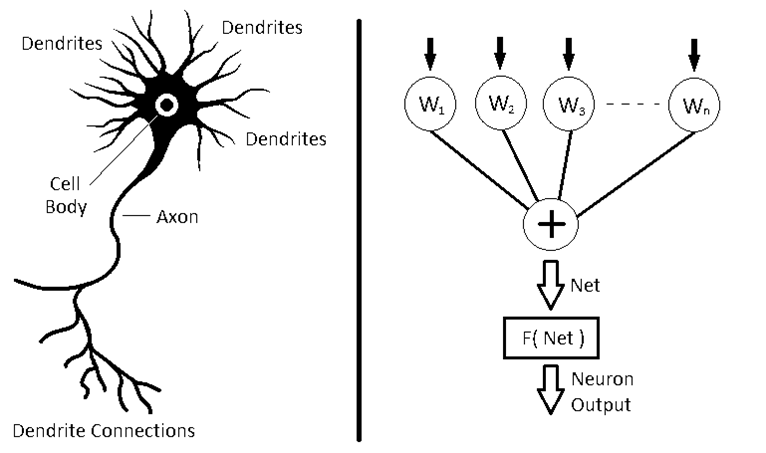Artificial neural networks
The following figure shows a simple biological neuron to the left. The neuron has dendrites that receive signals from other neurons. A cell body controls activation, and an axon carries an electrical impulse to the dendrites of other neurons. The artificial neuron to the right has a series of weighted inputs: a summing function that groups the inputs and a firing mechanism (F(Net)), which decides whether the inputs have reached a threshold, and, if so, the neuron will fire:

Neural networks are tolerant of noisy images and distortion, and so are useful when a black box classification method is needed for potentially degraded images. The next area to consider is the summation function for the neuron inputs. The following diagram shows the summation function called Net for neuron i. The connections between the neurons that have the weighting values, contain the stored knowledge of the network. Generally, a network will have an input layer, output layer, and a number...



























































